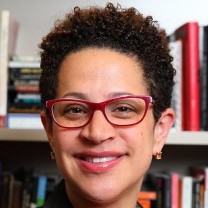 A new bill passed into law in the state of Illinois requires all state-operated colleges and universities in the state to include at least one course on Black history. The educational institutions can meet the requirement by offering an online course on Black history. In 1981, the legislature mandated every public school district in the state to teach Black history.
A new bill passed into law in the state of Illinois requires all state-operated colleges and universities in the state to include at least one course on Black history. The educational institutions can meet the requirement by offering an online course on Black history. In 1981, the legislature mandated every public school district in the state to teach Black history.
The new legislation states that each state college or university “shall offer a course studying the events of Black History, including the history of the African slave trade, slavery in America, and the vestiges of slavery in this country. These events shall include not only the contributions made by individual African Americans in government and in the arts, humanities, and sciences to the economic, cultural, and political development of the United States and Africa, but also the socioeconomic struggle that African-Americans experienced collectively in striving to achieve fair and equal treatment under the laws of this nation. The taking of this course shall constitute an affirmation by students of their commitment to respect the dignity of all races and peoples and to forever eschew every form of discrimination in their lives and careers.”
 Elizabeth Todd-Breland, an assistant professor of history at the University of Illinois at Chicago told the Chicago Sun-Times that “given the way that Black history has been ignored or distorted — particularly the history of slavery in some secondary textbooks and curriculum — I think requiring Black history to be offered at the postsecondary level is important. It will also be important to monitor the implementation of this to make sure these courses are not marginalized among other requirements.”
Elizabeth Todd-Breland, an assistant professor of history at the University of Illinois at Chicago told the Chicago Sun-Times that “given the way that Black history has been ignored or distorted — particularly the history of slavery in some secondary textbooks and curriculum — I think requiring Black history to be offered at the postsecondary level is important. It will also be important to monitor the implementation of this to make sure these courses are not marginalized among other requirements.”
Dr. Todd-Breland is the author of the book A Political Education: Black Politics and Education Reform in Chicago Since the 1960s (University of North Carolina Press, 2018). She joined the faculty at the University of Illinois at Chicago in 2012 after earning a Ph.D. in history at the University of Chicago.


Long overdue, although I am not particularly optimistic that forced familiarity with slavery and its continuing after-effects will be well received by the intended audiences. Nevertheless, if it broadens even a few white minds concerning the Afro-American experience in these united states, it will be worthwhile. This type of requirement be nationwide!